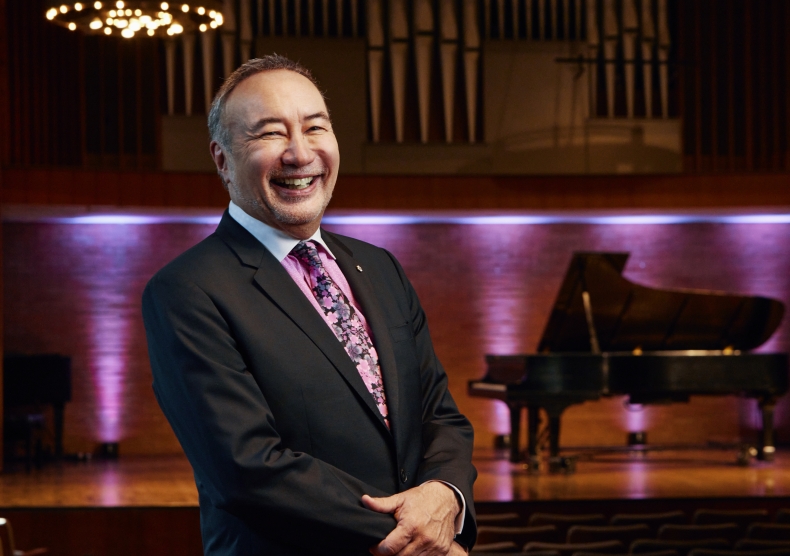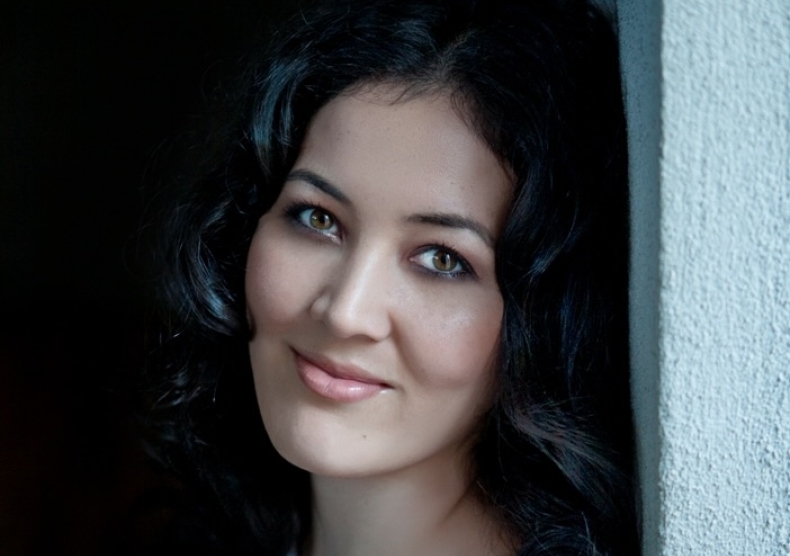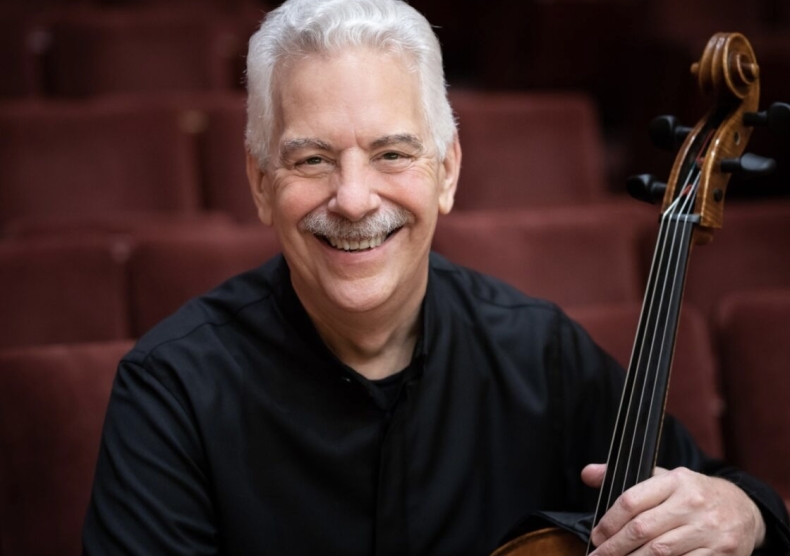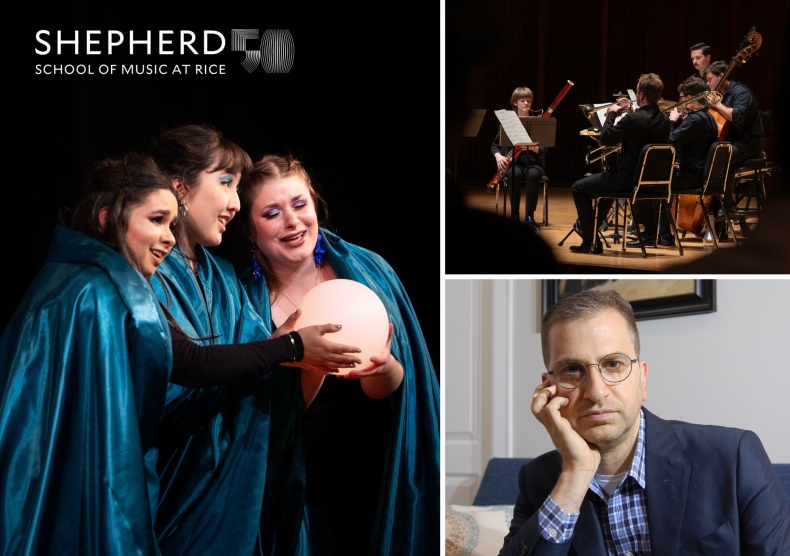A Black History Month concert featuring works by Grammy-nominated composer Shawn Okpebholo with poetry by Duke University’s Associate Professor of English Tsitsi Jaji. Shepherd School of Music Artist Teacher of Opera Studies Lyndsi Maus performs alongside Shepherd opera students.
Free, general admission
Repertoire
Florence Price Hold Fast to Dreams
Langston Hughes, poet
Edmond Rodriguez
Robert Owens Genius Child
Countee Cullen, poet
Tzvi Bat Asherah
Florence Price To My Little Son (from 5 Art Songs)
Julia Johnson Davis , poet
Julia Holoman
Florence Price Travel’s End (from 5 Art Songs)
Mary Hoisington, poet
Tzvi Bat Asherah
Shawn Okpebholo Ballad of Birmingham
Dudley Randall, poet
Edmond Rodriguez
Margaret Bonds Lord I Just Can’t Keep from Cryin’
Traditional Spiritual
Hanna Frampton
Harry T. Burleigh Her Eyes, Twin Pools
James W. Johnson, poet
Hanna Frampton
Samuel Coleridge-Taylor An African Love Song
Paul L. Dunbar , poet
Julia Holoman
Betty Jackson King Compensation
Paul L. Dunbar, poet\
Yining Xie
Rosephanye Powell I Want to die while you love me
Georgia D. Johnson, poet
Yining Xie
Jacqueline Hairston The Season of Remembrance
Langston Hughes, poet
Yining Xie
Shawn Okpebholo In Flight.
Tsitsi Jaji, poet
Jordan Twadell
H. Leslie Adams Prayer
Langston Hughes, poet
Hanna Frampton
Brittney Boykin Desert Song No. 3 “River”
Tsitsi Jaji, poet
Jordan Twadell
Shawn Okpebholo Wade in the Water
Traditional Spiritual
Tzvi Bat Asherah
Shawn Okpebholo An Echo, an Ending
Marcus Amaker, poet
Julia Holoman
Artists
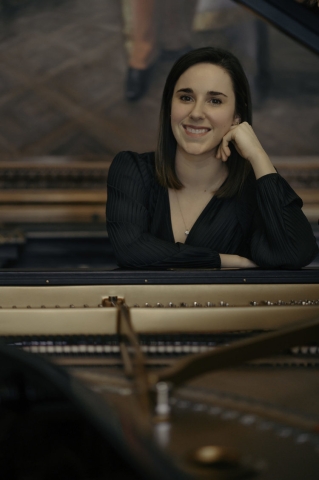
Lyndsi Maus joined the Shepherd School of Music faculty at Rice University as an Artist Teacher of Opera Studies in the fall of 2022. In addition to opera coaching, she also teaches the graduate level course on Song Literature.
She holds a Master’s degree in Piano Performance from the University of Cincinnati College-Conservatory of Music (2015) as well as a Master’s degree in Klavier Vokalbegleitung from the Kunst Universität Graz (2018), where she was a student of acclaimed British pianist, Julius Drake. During her studies in Austria, she was the recipient of several awards, including the Pianist Prize in the 2016 International Brahms Competition in Pörtschach, Austria, and in the same summer, the “Outstanding Lieder Pianist Prize” at the American Institute of Musical Studies (AIMS) in Graz, Austria. She is also a Britten-Pears Young Artist, having participated in the 21st Century Singer course in 2018.
In addition to Lied accompanying, Lyndsi has served as a répétiteur and harpsichordist for several opera festivals around Europe, including works such as Mozart’s “Die Zauberflöte” and “Così fan tutte,” Humperdinck’s “Hänsel und Gretel,” and Monteverdi’s “L’incoronazione di Poppea.”
From 2019-2021, she was a member of the Opera Studio at Staatstheater Nürnberg, where she worked on projects such as Bernstein’s “West Side Story,” Britten’s “The Rape of Lucretia” and Anton Rubenstein’s “The Demon.” In September 2021, she joined the team at Theater Regensburg as a full-time répétiteur, where she took part in productions such as Massenet’s “Werther,” J.Strauss’ “Die Fledermaus,” the musical “Chicago,” and the world premiere of “Mui” by Anton Lubchenko.
GRAMMY®-nominated for his latest solo album "Lord, How Come Me Here?"—a collection of reimagined Negro spirituals—and named one of the 2023 Musical America Top 30 Professionals of the Year, Nigerian-American composer Shawn E. Okpebholo's music resonates globally, earning widespread acclaim from critics and audiences alike.
Okpebholo has garnered numerous accolades, including awards from The Academy of Arts and Letters, the American Prize in Composition, the Music Publishers Association, ASCAP, and was awarded the Inaugural honoree of the Leslie Adams-Robert Owens Composition Award. Grants from the National Endowment for the Arts, Chamber Music America, Barlow Endowment for the Arts, Illinois Arts Council, Tangeman Sacred Music Center, The Mellon Foundation, Wheaton College, and many others have supported the work of Okpebholo.
His art songs have been presented in concert by the Chicago Lyric Opera, Los Angeles Opera, Fort Worth Opera, Portland Opera, and Des Moines Metro Opera. His chamber music has been performed by eighth blackbird, Copland House Ensemble, Picosa, Fifth House Ensemble, Lincoln Trio, and others. Orchestras including the Chicago, Cincinnati, and Houston Symphonies and the Lexington Philharmonic have featured his music. Okpebholo has also collaborated with renowned solo artists including vocalists J'Nai Bridges, Lawrence Brownlee, Rhiannon Giddens, Will Liverman, Michael Michael Mayes, Ryan McKinney, and Tamera Wilson.
His extensive artistic reach has led to regular performances at prestigious venues like Carnegie and Wigmore Halls, Lincoln, Kennedy, and Kimmel Centers, and the Metropolitan Museum of Art. As a pedagogue, Okpebholo has conducted masterclasses at various academic institutions worldwide, including two universities in Nigeria. His research interests have led to ethnomusicological fieldwork in both East and West Africa, resulting in compositions, transcriptions, and academic lectures.
He earned his master's and doctoral degrees in composition from the College-Conservatory of Music (CCM) at the University of Cincinnati. During his upbringing, a significant part of his music education came from The Salvation Army church, where he received free music lessons regularly. Inspired by that altruism, Okpebholo is deeply passionate about music outreach to underserved communities. he serves as the Jonathan Blanchard Distinguished Professor of Composition at Wheaton College-Conservatory of Music and the Saykaly Garbulinska Composer-in-Residence with the Lexington Philharmonic.
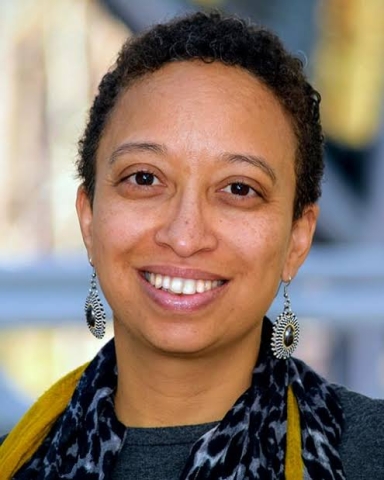
Jaji is an associate professor of English at Duke University with expertise in African and African American literary and cultural studies, with special interests in music, poetry, and black feminisms. She previously taught at University of Pennsylvania and has received fellowships from the National Endowment for the Humanities/Schomburg Center, Mellon Foundation, Radcliffe Institute for Advanced Studies, and National Humanities Center.
Before she was a poet, Jaji was a pianist. She grew up surrounded by song in her native Zimbabwe. Her father conducted choirs. Her mother introduced her to the piano at age 5, and Jaji went on to study piano performance at the Oberlin Conservatory of Music. She has accompanied a well-known tenor and composed music for an African modern dance troupe. She joined jazz bands and small combos and played at cocktail bars for tips during graduate school, and later wrote service music and Episcopalian sung prayers while on faculty at the University of Pennsylvania.
Today, however, she is best known for literary scholarship and creative works like Beating the Graves and Mother Tongues – poetry collections that reflect on family relations, diaspora, powerful women, first words, and love and language. Her book, Africa in Stereo: Music, Modernism and Pan-African Solidarity (Oxford), won the African Literature Association’s First Book Prize, as well as honorable mentions from the American Comparative Literature Association and Society for Ethnomusicology. The book traces how exchanges between African American, Ghanaian, Senegalese and South African artists shaped cultural and political liberation projects. Her 2016 work, Classic Black, is a study of poetry set to music by black concert music composers, “a neglected corpus of work in Black studies, one which brings poetry and music into dialogue,” she says. Jaji received a New Directions Fellowship from the Mellon Foundation to pursue musicology studies in support of this project.
Quotes about the black classical music canon:
At a time when Black music dominates pop culture and “I can’t breathe” is a slogan for the era’s defining political movement, it’s also a subject of particular relevance. “I think part of why it really matters for Black cultures is the history of expropriation and violence directed at Black bodies,” Jaji explains. “As a singer, your only instrument is your body. And fundamentally, the most important thing for producing sound is breathing.”
“And so we’re living in this moment where Black breath is in crisis, and here’s a historical practice that has absolutely claimed as its own and reveled in Black breath. It has a particular resonance in our time that isn’t separate from everything else.”
“To me, (recital music) is this whole archive of literary commentary,” Jaji says. “It’s a different body of scholarship, and it’s connected to pleasure…People in literature departments haven’t really paid attention to it, and that makes sense. But it curtails our understanding of the history of critical reading in Black communities.”
Sponsored By
Special thanks to Rice University's Center for Engaged Research and Collaborative Learning (CERCL), the Shepherd School of Music, and Musicians United for Social Equality (MUSE) for their support of this performance.


